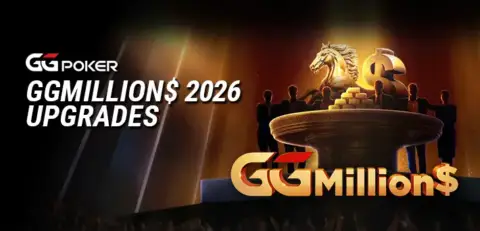Senator Joseph Addabo Jr. introduced a bill on May 9, 2024, to legalize online poker in New York. This proposed legislation is a significant milestone for the state’s gambling industry. If passed, it could create new opportunities for players, increase tax revenue, and position the state as a leader in online gaming. Should this bill pass the New York Assembly, it would bring clarity to the legality of online poker and establish a regulated market in the Empire State.
Is Online Gambling Legal in New York?
Online gambling in New York is not permitted; however, sports betting is legal. Despite the ban on online gambling, New Yorkers have options:
Tribal casinos: Players can visit tribal casinos operated by the four federally recognized Native American tribes. These casinos offer Vegas-style gaming including poker rooms.
Offshore casinos: Although online gambling is illegal, New Yorkers can engage in poker using offshore casinos. These casinos are regulated by foreign licensing bodies and are perfectly legal for New York residents to enjoy.
Crypto casinos: Online crypto options like Stake Casino offer players an avenue to play different poker variations using cryptocurrencies like Litecoin, Bitcoin, or Ethereum. However, there are a growing number of these sites, and Stake isn’t the only option nowadays. ValueWalk’s Kane Pepi notes that several plprovide ayers are choosing reputable online gambling platforms that are highly ranked here and a secure and anonymous gambling experience. Crypto casinos operate similarly to offshore casinos and are typically licensed and registered outside of New York, however, they’re accessible from anywhere in the world.
Social and Sweepstakes casinos: Sweepstakes and social casinos are a legal alternative for online gambling in New York. Both casino styles do not accept real money, instead, players use virtual currencies like Gold coins or Sweep coins.
The Push to Legalize Online Poker
The introduction of the new bill SB 9226 aims to legalize online poker, defining poker as a game of skill, rather than a game of chance. This difference is exceptionally important since it sets the stage for allowing online poker in New York to be legal. By labeling poker as a skill-based game, particularly Omaha Hold’em and Texas Hold’em poker, the proposal recognizes that winning a game of online poker mostly depends on the player’s strategic thinking skills, expertise, and prior gaming knowledge, rather than pure luck.
This categorization supports the idea that poker requires an amount of skill, including being able to read your opponents, understanding probabilities, and making calculated moves make the difference. Senator Addabbo Jr. mentioned that should the bill pass, he hopes that all forms of online gambling, including mobile casino apps, will be legalized in New York.
The key provisions proposed for this bill include:
Licensing requirements: Any online poker venue must be licensed by the New York State Gaming Commission and Division of Gaming. Only ten licenses are available according to the proposed bill.
Age and Identity verification: All operators are required to verify the identities and ages of all players.
License fees: The bill proposes that online poker licenses will cost operators $10 million and each license will be valid for ten years.
Taxation: The bill mandates a tax rate of 15% on all Gross Gaming Revenue earned by online poker operators, with the purpose of using the tax proceeds to support the
Regulatory oversight: Within 180 days of the bill passing, the New York State Gaming Commission will be responsible for regulatory oversight of online poker.
The Potential Revenue and Economic Impact
The legalization of online poker could generate significant revenue for the Empire State, which could potentially address budget shortfalls and create new economic opportunities.
An Increase in Revenue
The proposal to legalize poker could generate significant revenue for the state through licensing fees and taxes. The proposed $10 million licensing fees per online operator, in addition to the 15% tax on gaming revenue, could help tackle the projected budget deficits of $36 billion over the three years.
The Potential for Interstate Compacts
If New York moves forward with legalizing online poker, it opens up the possibility of participating in agreements, such as the Multi-State Internet Gaming Agreement (MSIGA). This collaboration would allow operators to pool player funds across state lines, resulting in bigger prize pools and bigger tournaments. Given New York’s status as the most populous state, its entry into such an agreement could significantly boost the national online market.
Player Protections
The bill aims to provide a safe and regulated environment for New York residents. The bill proposes to establish a regulated online poker market, ensuring that players are protected from fraudulent activities and unfair gaming practices. One of the bill’s provisions for licensing and taxation of operators includes ensuring a secure environment while also ensuring that operators address problem gambling. The SB 9226 bill will also ensure that the state can generate revenue to support services for struggling players.
The bill offers player protections, similar to how the UK offers player protections through its GamStop scheme. However, it should be noted that players will still be able to access international sites, similar to how players in the UK can bypass the GamStop regulations and wager on overseas sites. This is an especially popular way to play crypto poker, both in the UK and elsewhere in the world.
Boosting the State’s Economy
Besides generating revenue for the state, the bill could address issues relating to job creation and economic growth. This expansion could lead to an increased demand for services in various sectors, including technology, logistics, and marketing, boosting employment, which contributes to economic growth.
Legislative Process and Future Prospects
Currently, the bill SB 9226 is under review and consideration by the Senate Committee on Racing, Gaming, and Wagering. This committee has a role in assessing the bill before it can move forward in the procedure. Some legislators are concerned that legalizing online poker might impact land-based casinos planned in New York City. It will be crucial for the state to carefully consider these concerns before moving with legalization. Without regulations and oversight, there is a risk of fraud and cheating in poker.
The New York State Legislature plans to go on a break on June 6th. There is a chance that lawmakers could be called back for a session by leaders like Senator Joseph Addabbo Jr., who is sponsoring the bill. This situation provides an opportunity for legislators to address SB 9226 until the session concludes, expected in January 2025.
Exclusion of iGaming Revenue in the Budget
If the proposed bill successfully passes both the Senate and Assembly, it will need Governor Kathy Hochul’s approval to become law. The governor’s stance on online gaming has been a topic of debate. Her executive budget for 2025 did not include anticipated revenues from online gambling, which may suggest she may not be in support of legalizing online poker. Governor Hochul holds a position in deciding on the acceptance of the bill and whether online poker legalization will be implemented in New York. Despite the Governor’s budget exclusion, there is still a chance that the bill to legalize online poker could pass through the legislature.
Future Outlook
The future outlook of the bill relies on factors such as its level of support in the Senate Committee, any changes or amendments during the legislative proceedings, and overall political circumstances related to online gambling in New York. Should the bill advance through both chambers of the legislature and receive approval from Governor Hochul, it could open doors for establishing a regulated online poker industry in New York with advantages and player safeguards.














